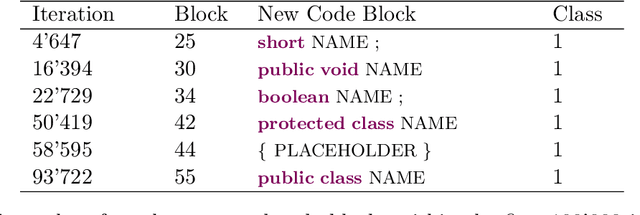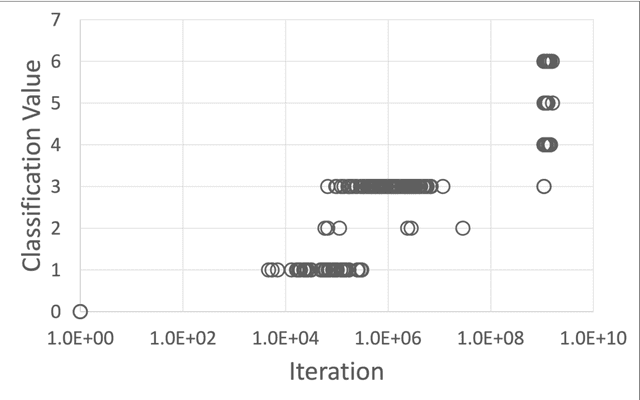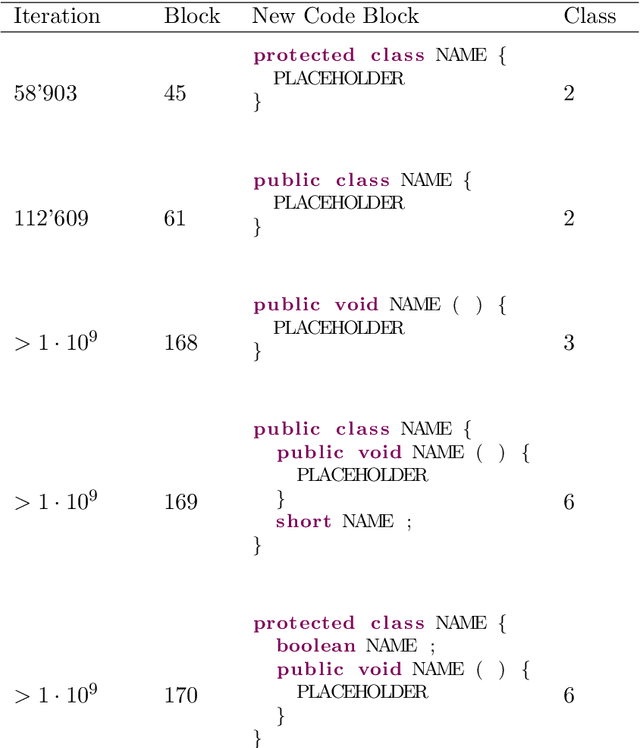Oliver Ruggli
Automatic Programming Through Combinatorial Evolution
Feb 20, 2021


Abstract:It has been already shown that combinatorial evolution - the creation of new things through the combination of existing things - can be a powerful way to evolve rather than design technical objects such as electronic circuits in a computer simulation. Intriguingly, only a few iterations seem to be required to already achieve complex objects. In the present paper we want to employ combinatorial evolution in software development. Our research question is whether it is possible to generate computer programs of increasing complexity using automatic programming through combinatorial evolution. Specifically, we ask what kind of basic code blocks are needed at the beginning, how are these code blocks implemented to allow them to combine, and how can code complexity be measured. We implemented a computer program simulating combinatorial evolution of code blocks stored in a database to make them available for combinations. Automatic programming is achieved by evaluating regular expressions. We found that reserved key words of a programming language are suitable for defining the basic code blocks at the beginning of the simulation. We also found that placeholders can be used to combine code blocks and that code complexity can be described in terms of the importance to the programming language. As in the previous combinatorial evolution simulation of electronic circuits, complexity increased from simple keywords and special characters to more complex variable declarations, to class definitions, to methods, and to classes containing methods and variable declarations. Combinatorial evolution, therefore, seems to be a promising approach for automatic programming.
 Add to Chrome
Add to Chrome Add to Firefox
Add to Firefox Add to Edge
Add to Edge